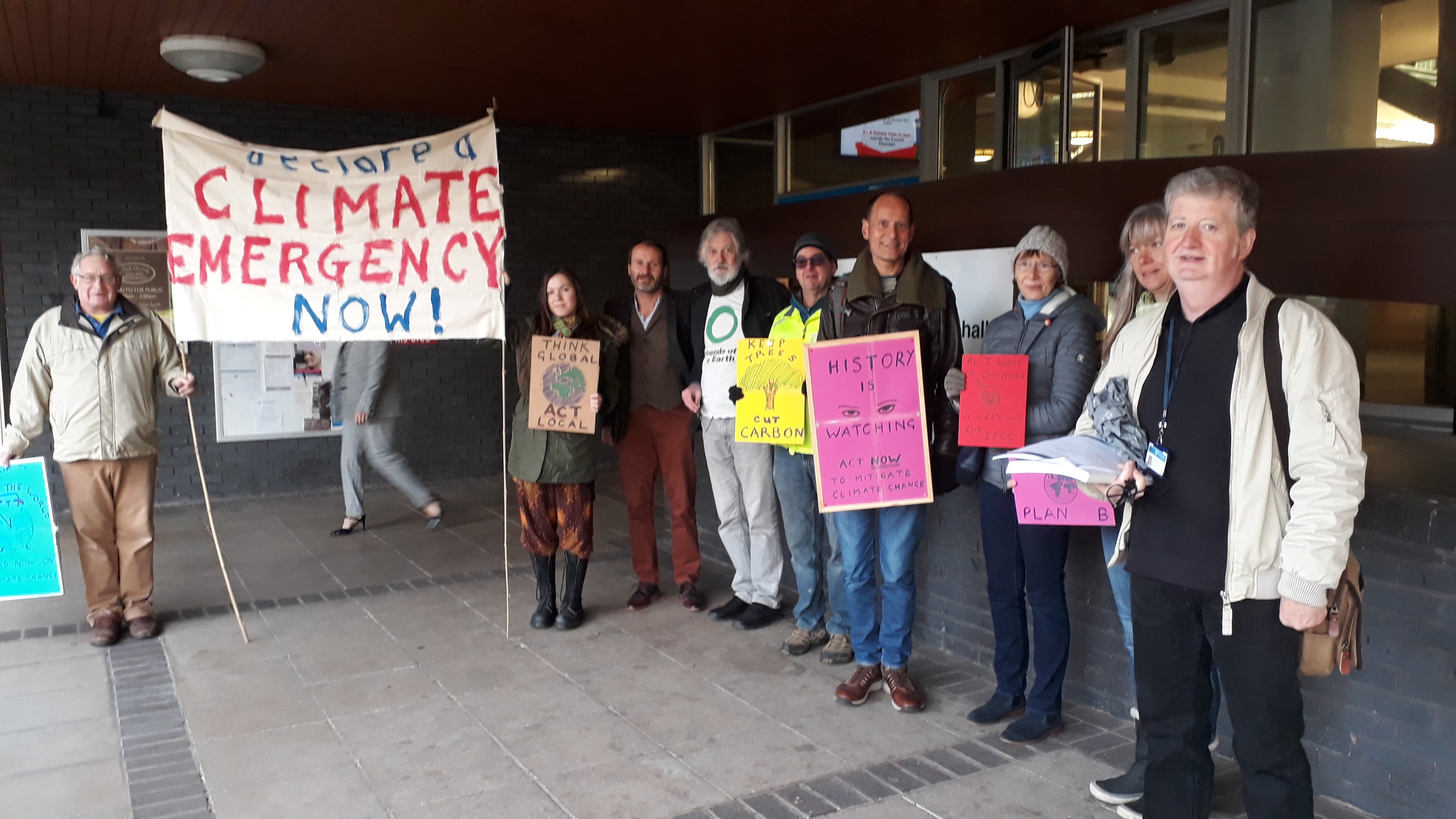People and organisations are at last getting on with tackling the climate emergency. But there is still more talk than action. Too much talking up achievements rather than recognition that we have barely begun tackle the problem. There is a lack of commitment to early dates for going carbon neutral. A few organisations are talking about going carbon negative. Shropshire has been in the slow lane but that is changing. We need to push the pace of that change.
The council is finally making steps towards addressing the climate emergency. But it is making steps not strides forward.
There are two climate emergency meetings coming up in Shropshire during February. Please add any other meetings to the comments on this article.

You can book for the above event here.
Shropshire Council is also hosting a workshop on climate change on 10 February. It is open to all but you need to book.
The context
Shropshire Council still hasn’t set up the Climate Action Partnership agreed last May. But it has agreed a Climate Change Strategy Framework that commits the council to becoming carbon neutral by 2030. A Climate Change Task Force within the council is also in place. These are good moves. But it needs to grasp its role as a civic leader. Although it is talking up its lead as a climate champion, the reality is different.
Sodium streetlights (SOX) are at last being replaced by LED lights across the unitary area. The leadership of Shropshire Council resisted five years, every one of which my follow councillor Roger Evans put forward motions to replace SOX with LED. The motions were always voted down by the Conservatives. Peter Nutting said it was too expensive. But at last the replacement programme is going ahead. We can’t catch up with Telford and Wrekin Council which has all but completed its SOX to LED conversion but we can follow. Market Drayton is also running ahead. At least Shropshire Council is heading in the right direction at last.
Shropshire Council says that farming is important because soil is one of the best ways of storing carbon. I fully agree but it’s policy of selling off its small farms will lead to larger scale farming operations. These often degrade soil and increase monoculture. The council has yet to accept that there is a biodiversity crisis inextricably linked with the climate emergency. It has yet to put forward planning policies that tackle the growing industrialisation of Shropshire’s farming landscape.
In December, the council rejected a motion to work with other local authorities to develop plans to double woodland cover in the Marches by 2050. There were no coherent arguments against it. The portfolio holder for climate change, Councillor Dean Carroll, was particularly reluctant to support the motion. Trees, like peat bogs and soil have been among our most important carbon sinks for millennia. But there is a lack of vision and ambition on climate change in the council leadership.
The council’s investment in solar panels of the roofs of its buildings is welcome. That is better than solar arrays across green fields which can be used for agriculture. But still there is no planning policy requiring or advising installation of renewable energy on all new developments. Heat pumps, solar. Let alone a commitment to building homes to zero carbon standards.
Announcing “climate change success for Shropshire”, Shropshire Council’s lead councillor on climate change Dean Carroll told the Shropshire Star: “This is a reaction to climate change, it is not a reaction to pressure groups.” I think he must live on a different world. It is pressure groups and environmental champions like Greta Thunberg and David Attenborough that have kept the climate emergency debate at the forefront of media coverage. In our media saturated world, it is impossible to deny that what Carroll calls pressure groups have led to a seismic shift in public and political opinion about the climate emergency.
Long may that continue. We must treat climate change as an emergency. We have been talking about climate change long enough.
Margaret Thatcher was one of the world leaders that put climate change on the map. But she dumped that as her obsession that the economy trumped everything took hold. Not the survival of communities and nations across the world. The survival of the banks and shareholders was paramount.
Shropshire Council’s leader has the same view. When we tried to get a target of carbon neutral by 2030 in May 2019, he said “We can’t risk the economy.” He wants to extend the M54 into the county, build the North West Relief Road and still dreams of a county airport.
It is time to stop saying words and to act.

